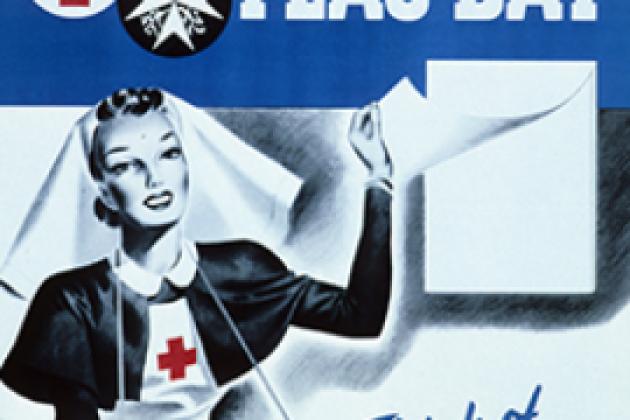- Security & Defense
- US Defense
- International Affairs
- US Foreign Policy
- Terrorism
- History
- Military
- Revitalizing History

When small, even middle-sized powers make grievous mistakes like fighting a losing war or ignoring deadly threats, they risk their place in the global hierarchy or, worse, their existence. Thus did France and Britain when they failed to fight Nazi Germany in the Thirties while still in position of strategic superiority. Instead of preventive war, it was “Munich.” Yet the mark of a superpower like the United States is a vast margin of error. It can absorb a deadly blow in Pearl Harbor 1941 and crush Japan in 1945. It can stumble badly in Vietnam and Afghanistan, but will not fall like France in 1940.
America plays in a different league. Its mistakes are not fatal. When Dean Acheson excluded South Korea from its defense perimeter in 1950, North Korea’s invasion followed swiftly. Yet America’s position in the global scheme remained unscathed. It bounced back and restored the status quo ante. Vietnam was humiliating, but after 1975, the U.S. still remained the greatest power on earth, ready to prevail in the next critical contests: the Cuban missile crisis of 1962, Afghanistan after 9/11, and two Iraq wars. Did anybody think that the U.S. was on the way out when it tucked tail after losing 241 Marines to a terror attack in Beirut in 1983?
The analytical point is the distinction between the assets and achievements of power. The pay-offs of power were clearly negative in Vietnam and Afghanistan. But failure could not touch the asset side of the ledger—the enormous pile of chips the U.S. continues to bring to the table. Among these are the world’s no. 1 economy, the global reach of its sophisticated, battle-hardened army, and its unmatched cultural and technological clout.
So, in spite of repetitive failure during the past 70 years, America is still the greatest power on earth. Its mistakes are not lethal because of its vast strengths.
Now, the fears triggered by Joe Biden’s thoughtless self-eviction from Afghanistan are not groundless, and there is a price to pay: the loss of credibility and reputation, the crowing on the part of Russia and China, the doubts about American commitments among allies in Europe, East Asia, and the Middle East.
Some partners may well recalculate their interests, sidling up to Russia and China for reinsurance. On the other hand: How far will they go if Beijing keeps pressing on Japan et al. in the Pacific, Russia is extending its tentacles in Europe from the Baltics via Poland to Ukraine, and Iran is getting closer to the Bomb by the day? The United States remains the security lender of the last resort for those who will not or cannot provide for their own defense.
The problem is not the doomsday commentary in the media, but the changing character of “Mr. Big.” The key symptom is the retraction of American power that precedes the 46th president, as foolish or mendacious his oratory may be. “What, me worry?” in Afghanistan is part of a pattern that signals an ominous retreat from global responsibility. The trend began with Barack Obama, progressed under Donald Trump, and reached the acme of obliviousness under Joseph Biden. And hoi polloi are not far behind. A majority of Americans cheer the withdrawal from Afghanistan, though they are unhappy about the execution worthy of the Keystone Cops.
Left and right, the twain have met. The trend is now 13 years old. Its markers are Obama’s fitful retrenchment from the Greater Middle East, followed by Trump’s “America first,” as manifested by his draw-down of American forces in Europe and his pullout deal with the Taliban, not to speak of trade isolationism and a steady flow of insults against America’s allies. Nor is Biden alone in failing to think in grand strategic terms. He has plenty of allies in the Congress who would cut defense spending and lower America’s profile in the world. Biden finds himself in the company of Messrs. Obama and Trump.
Biden is more radical than Obama and less abrasive than Trump, but he is not an outlier. Thirteen years, for sure, is not enough to make for a secular shift, and America has gone through such cycles before. But note what is happening on the domestic stage where Biden is about to overtake Europe on the left with an ever-expanding welfare state. The nation is not just leery of America’s role as a world power; it is also turning inward in ways that damage its standing on the global chessboard—with welfare trumping warfare. Once enshrined into law, an American entitlement society will lack both the will and the wherewithal to take care of the global house. Why? A great power must always be ready and capable to threaten and execute. That is what such powers do.
Mr. Biden aims to turn the U.S. into a “normal” power—one that puts its faith into amiability, modesty, cooperation, and goodness—such as saving the planet. That is tailor-made for the medium-sized nations of Europe, where virtue does not exact an existential price as long the U.S. provides a security umbrella. Russia, China, and Iran, though, are not in the business of benignity. Their game is revisionism: a lot more for us and a lot less for the reigning superpower.
On the other side of the ledger, which the prophets of doom tend to overlook, there are the enduring realities of America’s vast assets. Such riches do not forebode the relentless decline of America. Like in Vietnam, the humiliation in Afghanistan may pale. The real problem is the longer-term factors that have been driving retraction for a dozen years.
Prophecy is easy for agitated pundits whose columns will be forgotten tomorrow. But divination is not given to ordinary mortals like this author. All we can know is the recent past, which seems to be jelling into a pattern. What is the common denominator of three presidents as diverse as Obama, Trump, and Biden? It is to shrink America’s footprint in the world. Let’s reduce our burden, let’s follow Obama’s dictum: “It’s time for a little nation-building at home.”
It is “isolationism lite” for the sake of a more perfect, though debt-financed welfare state, which imposes stark choices. Shall we match the Chinese ship by ship or provide free kindergarten for all? Add the psyche of a nation that has tired of the burden after so many interventions that have claimed thousands of lives and trillions of dollars without bearing fruit. The impulse now is to upgrade the American interest and to downgrade the responsibilities the U.S. has borne for a lifetime.
The difference between Obama-Biden and Trump is not substance, but tonality. The Democratic duo spoke softly; Mr. Trump roared. But the name of the game has been “more for America and less for the rest of the world.” Retrenchment is the common motif.
Where is that road going? No prophecy, but probability at this point. In the affairs of nations, rivals will not reward strategic reticence with modesty on their own part. They will exploit opportunity. Like nature, world politics abhors a vacuum, which China, Russia, and Iran have been filling since the days of Obama. They will redouble their efforts under Biden, who is practically issuing an invitation to them.
History has richly proven this point: Great powers cannot withdraw from the game—or only at their own and the world’s peril. Is there a silver lining? Once the U.S. bestrode the world at the end of the 19th century, it has gone through cycles of intrusion and inwardism. In each cycle, it would have been far less costly to show the flag rather than to furl it (think 1914, 1939, and 1950 in Korea).
The nasty irony today is the old one. In all cases of retreat, the U.S. was not down, let alone out. In spite of its towering strength, it blithely deemed itself immune to the gathering storm—and then had to return at the cost of bloody war. Mr. Biden is not the first to face this lesson, and hence, he has no excuse. The country has been there so often before. Great powers, alas, have to take care of both: their own welfare and the state of the world.
Josef Joffe, a member of Hoover’s Military History Working Group, is Professor of Practice/International Affairs at the Johns Hopkins School of Advanced International Studies where he teaches international relations and political thought.















